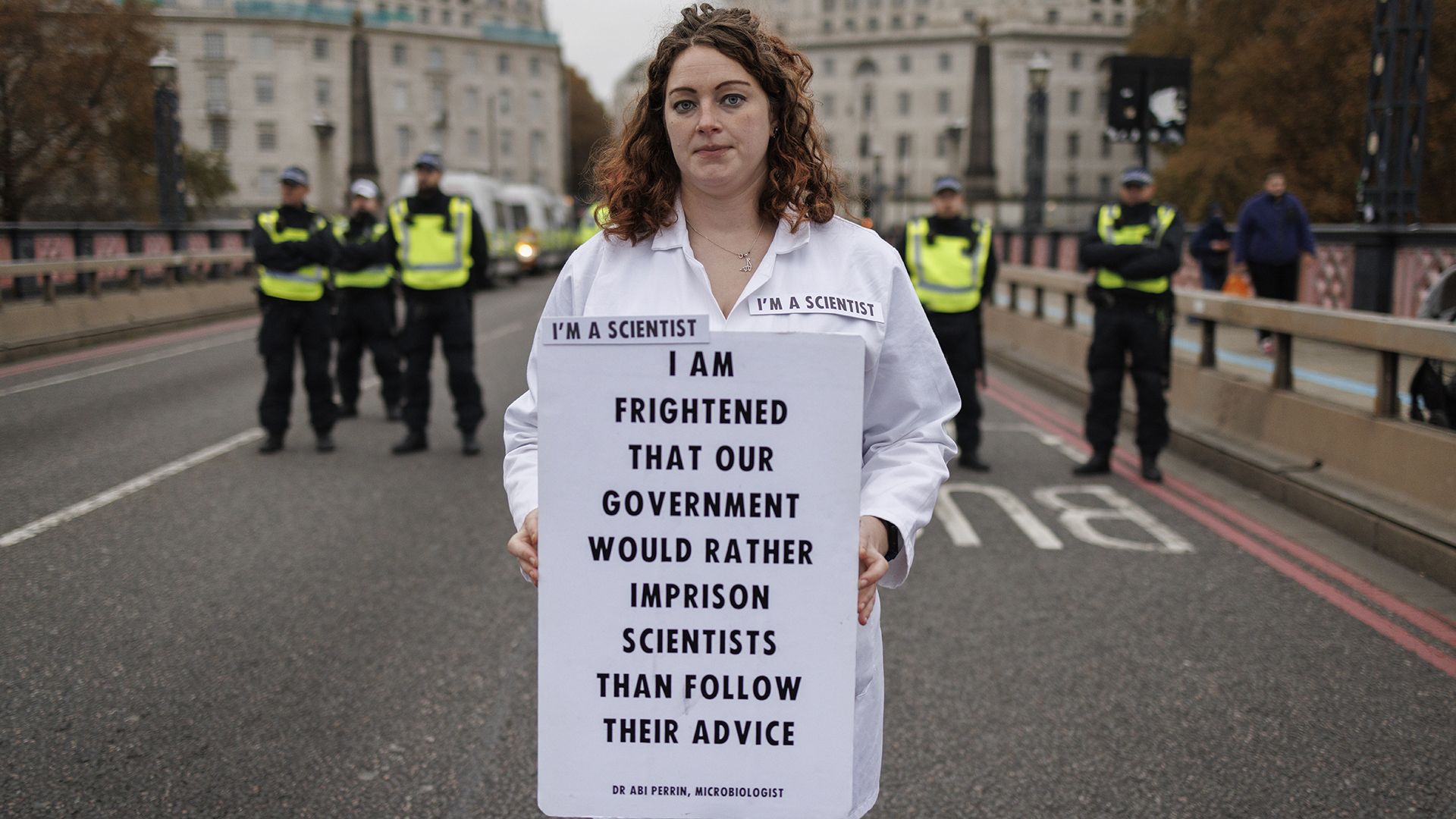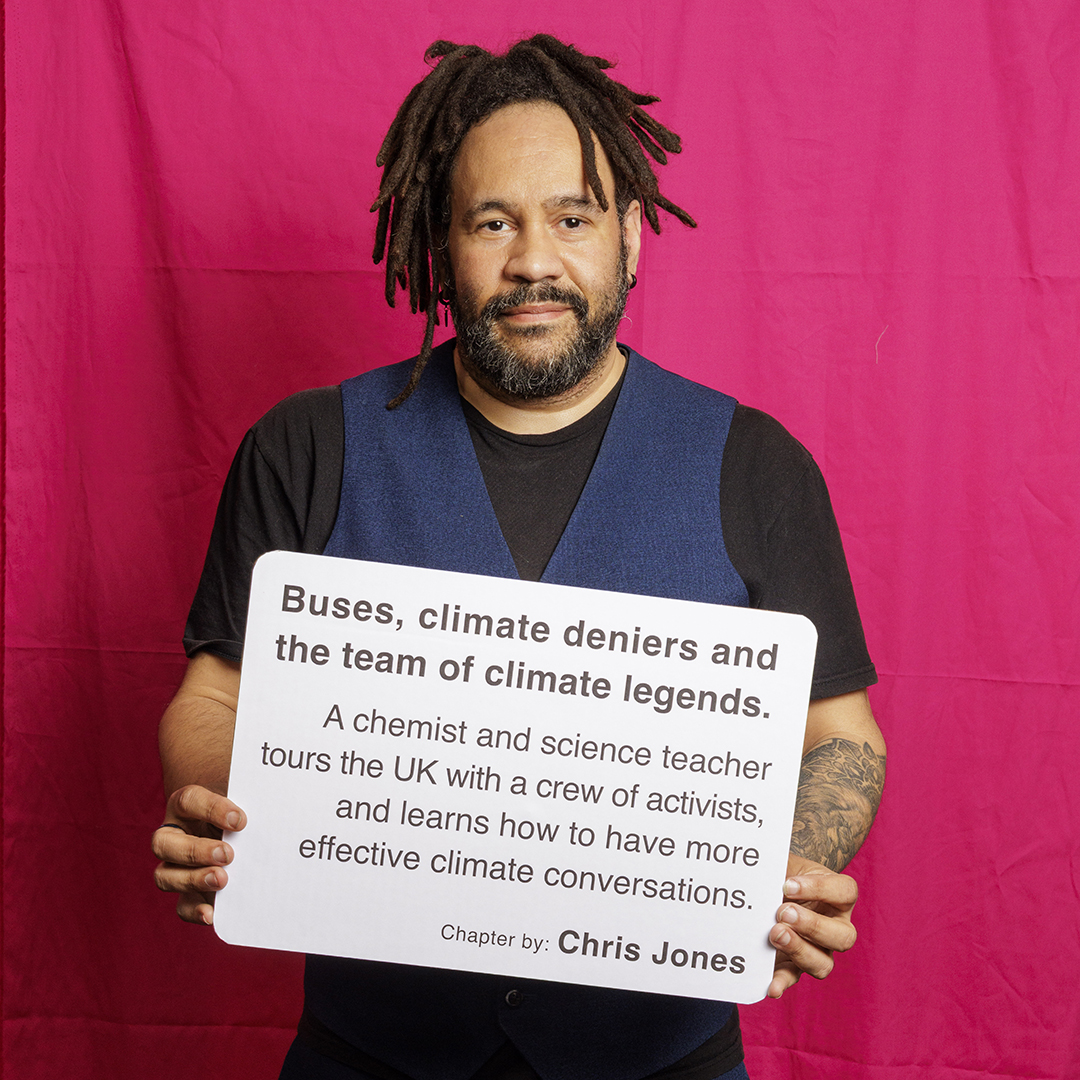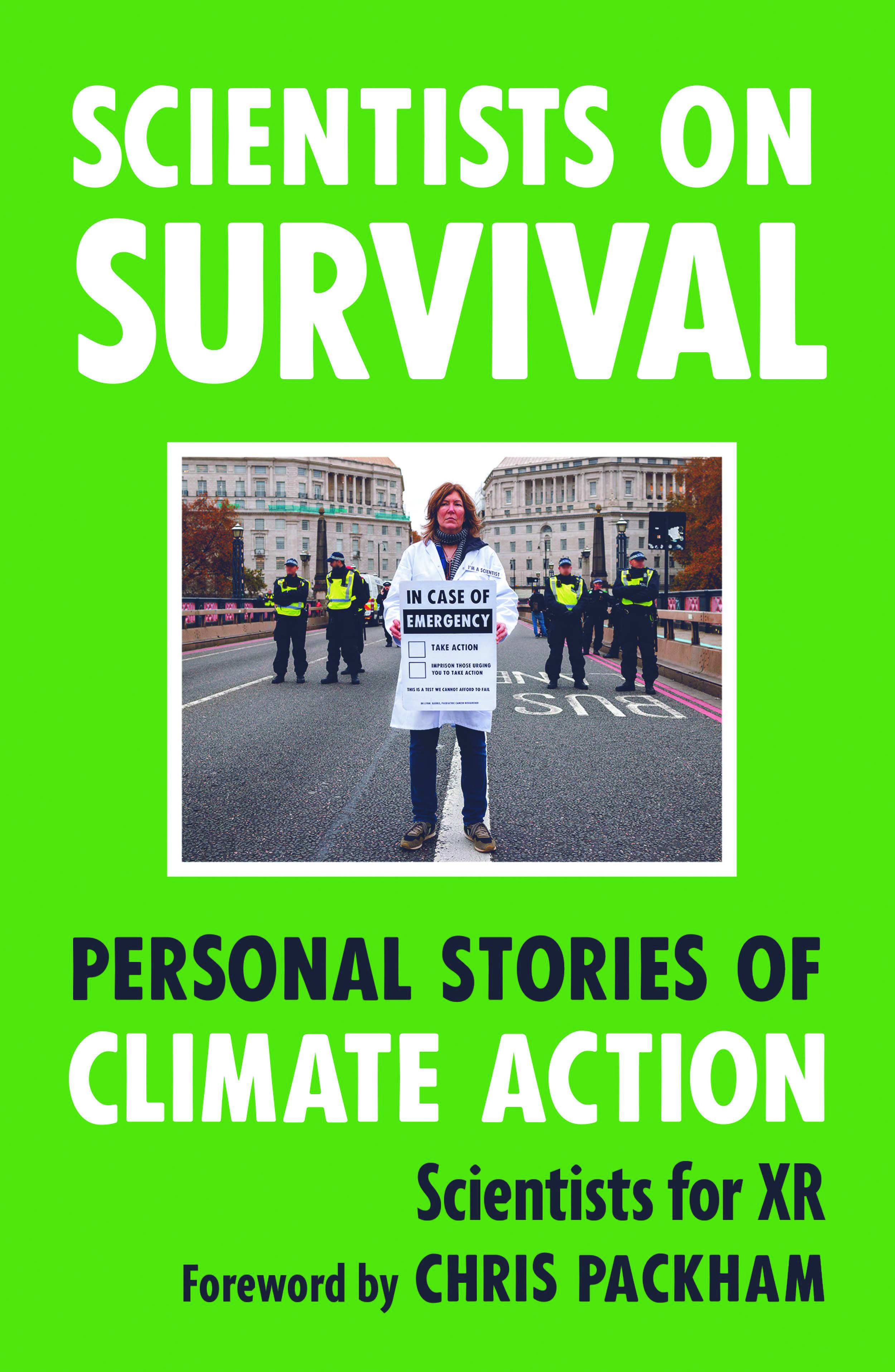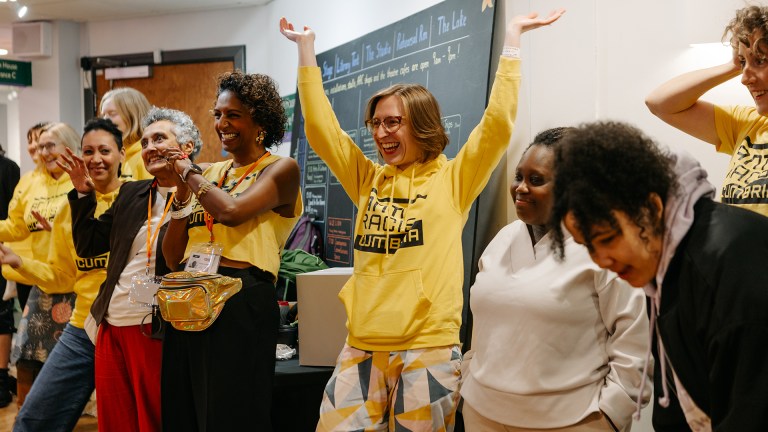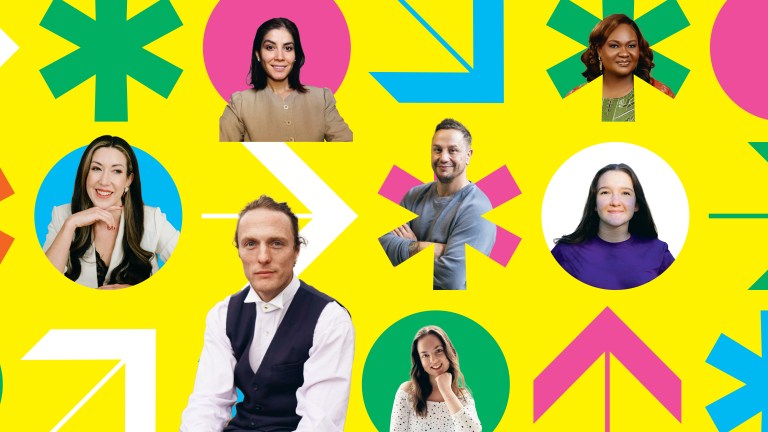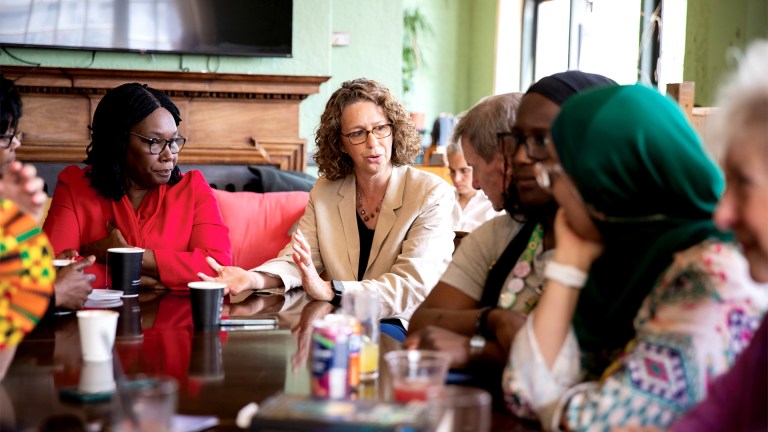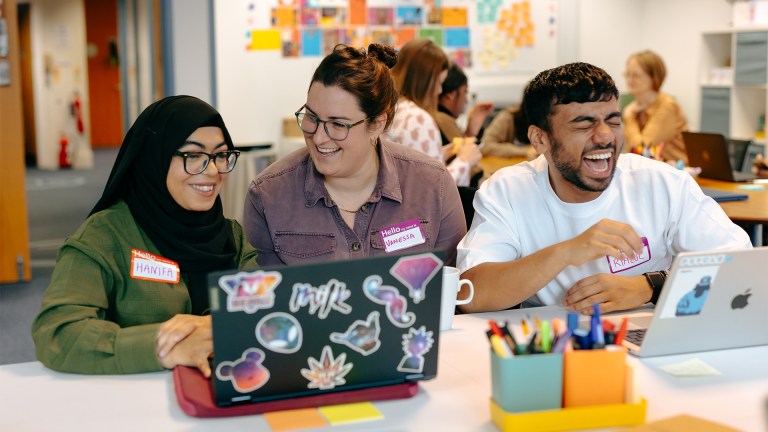Science generates evidence, which in turn informs policy and creates positive societal and global change. But now that social contract has been broken. So what does that mean for scientists? In a new book, 25 experts explain how they have had to change tactics in the face of the climate emergency. Here, three of them share their stories about the ways they’ve adapted their work while trying to save the planet.
Abi Perrin, scientist / climate and nature activist
Until recently, my job involved many hours of staring down microscopes trying to decipher the intricate inner workings of the tiniest lifeforms, things like malaria parasites and carbon-capturing algae. Motivating my work was a belief that what we learned would benefit people through better medicines, foods or environmental protections. I was also deeply fascinated by the life in my petri dishes.
By 2018, I began to feel conflicted about my research career. Despite lots of talk about the climate emergency, not much about daily life in research science was changing around me. There were a few new stickers on bins and light switches, and some people started measuring how much plastic they were using, but it felt confusing not to see more urgent action. So when I saw scientists out at climate protests in their lab coats I was immediately drawn to meet them.
The more I got to know these scientists, the braver I felt to explore different ways to push for change. This has led me to shift away from looking down microscopes.
I miss the moments of wonder I experienced at the laboratory bench, but I’m certain that the best way I can use my scientific training is no longer in studying life, but by acting to protect it while we still can. I’ve presented talks, ran workshops, met with politicians and continued to engage in nonviolent protest alongside a community of scientists who have encouraged and inspired me. Writing our book has been a reminder of what we can achieve when we work together – to counter my once-overwhelming feelings of despair with growing shoots of courage and agency.
- Climate anxiety: What is it and how can you cope?
- How to talk about climate justice and help create a more equal world
- ‘I’m scared – but I’m ready to go’: Why GPs are willing to go to prison to protest the climate crisis
Neal Haddaway, environmental scientist / photojournalist
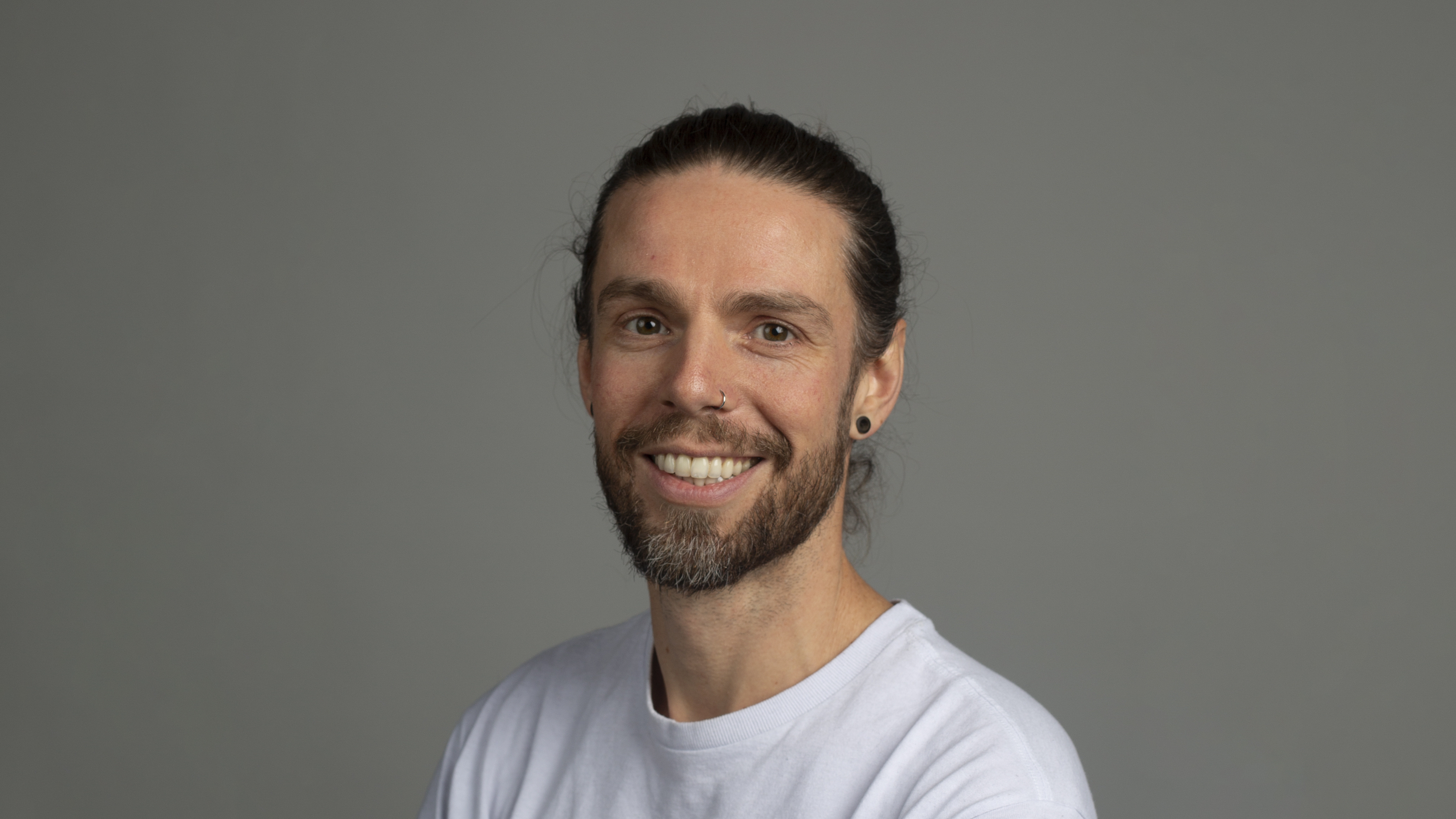
I am often asked if I feel hope about the future. As an environmental scientist, my research focused on identifying impacts of human society on the natural world. The results painted a bleak picture. The more
I studied different systems – from agriculture to mineral extraction, and from international development to climate change – the results pointed in the same direction. Things were bad and they are getting worse. Hopeful wasn’t a word I ever felt. Terrified, panicked, paralysed, more like.
